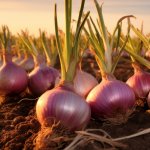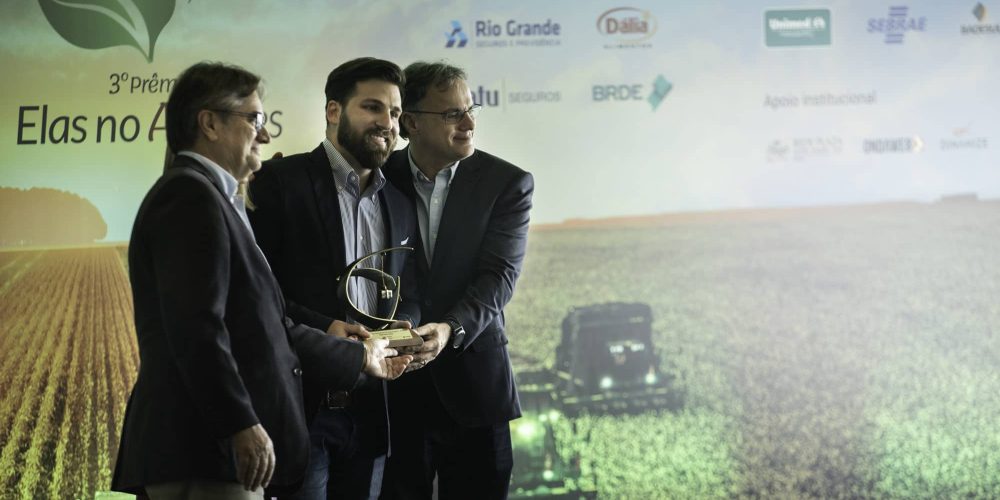ILSA Brazil – Commitment to sustainable production
Sustainable development can be defined as development capable of meeting the needs of the current generation without compromising the ability to meet the needs of future generations, that is, without depleting available resources, as stated on the WWF – Brazil website. In this sense, the United Nations (UN) reflects on the impact that the linear production model has on production chains and the consumption of natural resources, in order to shed light on issues involving sustainable development in an interconnected global economy. This is where the Circular Economy (CE) comes in, based on reuse, recycling and damage repair.
After all, what is a circular economy?
As Santos et al. (2019) state, the relationship between industry and the environment is crucial for the performance of industrial businesses, since environmental impacts have gradually increased pressure on industries in a wide range of sectors. Due to new consumer societies and the rapid growth of industrial activity, emissions into the environment, waste generation and landfills have become increasingly numerous (Santos et al., 2019). According to Fischer and Pascucci (2017), the current linear production system, with ever-increasing consumption and economic growth, is coming to an end, as resources are becoming scarce, causing price volatility, uncertainty and economic crises, and leading to the deterioration of ecosystems.
Antoine-Laurent de Lavoisier (18th century), a Frenchman considered the father of modern chemistry, uttered the famous phrase that announces the economic revolution under construction at the beginning of the 21st century: “in nature nothing is created, nothing is lost, everything is transformed”. In this context, the Circular Economy emerges as an alternative to the traditional economic model, promoting new business models and forms of consumption that help growth stabilization and environmental conservation (EMF, 2015). The concept of CE, also known as restorative economy by nature, dates back to the 1970s, but discussions about its implementation are still relatively recent, emerging strongly in 2012, as cited by Azevedo (2015). For Barderi (2017), in CE, the entire value chain of the product is taken into consideration, from the extraction of raw materials, conversion, manufacturing, distribution, use and, finally, end-of-life management, which includes reuse, recycling, energy recovery, among other means. Thus, it is a model that is not based on consumption, but on restorative use, having tools such as remanufacturing to achieve this purpose (GUIDAT et al., 2014), using the very functioning of nature in favor of production.
The application of CE has been widely discussed in agriculture. In this sense, Brazil's potential for inclusion in this emerging bio-based, circular and sustainable economy is nothing short of extraordinary, as explained by Maurício Antônio Lopes, former president of Embrapa (2015), since we have one of the most sustainable agricultural systems on the planet. However, there is still a way to go. The transition to a circular economic model in agriculture, according to Hayashi et al. (2020), must be carried out at the supply chain level and not just at the individual company level, due to the scope of the agricultural system. This transition requires medium and long-term policies that promote the redesign of existing production systems, incorporating integrated technological solutions that allow the development of the biogeochemical and technical aspects of the circular system.
According to Hayashi et al. (2020), this transition in the agricultural sector generates a series of opportunities for the development of innovative technologies and profitable business practices to address the use of agricultural waste, by-products and co-products and should be based on three principles: i) production using the minimum possible external inputs; ii) nutrient cycling and reduction of negative discharges into the environment and; iii) valorization of agricultural waste. To this end, a comprehensive analysis of the agri-food value chain should be carried out, including livestock and agricultural production, food processing and the retail sector, providing mechanisms to achieve an increase in the recycling and valorization of agricultural waste, maximizing the use of by-products and co-products through the creation of new sustainable value chains, ensuring the gradual shift to a circular economic model in agriculture.
ILSA Brasil’s production process – Responsibility towards the Sustainable Development Goals
The UN, in partnership with Brazilian companies, established the Sustainable Development Goals (SDGs), consisting of 17 ambitious and interconnected objectives that address the main development challenges faced by companies in Brazil and around the world. In order for a company to be considered sustainable, it must meet all of these objectives. The SDGs are a global call to action to end poverty, protect the environment and climate, and ensure that people everywhere can enjoy peace and prosperity, in order to achieve the 2030 Agenda in Brazil. The goals are: 1. No poverty; 2. Zero hunger and sustainable agriculture; 3. Good health and well-being; 4. Quality education; 5. Gender equality; 6. Clean water and sanitation; 7. Affordable and clean energy; 8. Decent work and economic growth; 9. Industry, innovation and infrastructure; 10. Reduction of inequalities; 11. Sustainable cities and communities; 12. Responsible consumption and production; 13. Climate action; 14. Life below water; 15. Life on land; 16. Peace, justice and strong institutions; and 17. Partnerships and means of implementation.
ILSA is a global leader in the search for and transformation of renewable raw materials into high-performance products for modern agriculture, sparing no effort to be aligned with the SDGs, and establishing several practices and attitudes that always move towards sustainability, which will be presented below. In line with Goals 1, 12 and 13, we use by-products from the leather and footwear industry as raw material for collagen extraction and the production of the organic matrix for all our fertilizers. When leather by-products are used in the production of fertilizers, significant environmental liabilities are avoided and the circular economy is stimulated.
Furthermore, with regard to environmental preservation, we contribute to the conservation of soils, natural resources and the increase in soil biodiversity (Goals 13, 14 and 15), since our organomineral fertilizers have a high concentration of nitrogen (N) and other organic components, which serve as food for soil microorganisms and contribute positively to the adequate microbial development in the rhizosphere. Our organic fertilizers protect the soil from contamination with nitrates, since the gradual release of N (mediated by soil microbiology) causes this element to be fully utilized by plants throughout their production cycle. In this way, there is no leaching into groundwater, rivers and springs, promoting water preservation, as provided for in Goals 6 and 14.
According to Machado (2005), terrestrial ecosystems comprising vegetation and soil are currently considered a large sink of carbon, especially soils. According to this author, there are several ways in which appropriate management of the terrestrial biosphere, particularly soil, can result in a significant reduction in greenhouse gas (GHG) emissions. Crops and forests that use ILSA fertilizers contribute to carbon sequestration, fixing it back into the soil, constituting an economically viable and highly effective system (Goals 11 and 13). Furthermore, with the technology and innovation of the ILSA fertilizer production process, the production of 1 kg of N uses 50 % less energy than the production of 1 kg of mineral N, achieving Goals 9 and 15.
In the SDGs established by the UN, Goals 1, 2, 3 and 4 are directly related to social issues and, in these areas, ILSA is also a reference because, together with our employees, we carry out several volunteer projects. An example of this is the ILSA Solidária program, where we contribute to the environmental education of children and adolescents from several municipal schools in the vicinity of our units and participate in the Clothing Drive, in partnership with the city governments of different municipalities. In addition to this work, we also participate in the ARBORIZAR project, which seeks to increase the number of native tree species in urban areas, through planting and environmental education. Furthermore, in compliance with Goals 2, 3, 4 and 11, also related to social issues, our daily work in the field brings quality information to more than 5 thousand people, contributing to the increase in production and income in the field. There are 20 agronomists and agricultural technicians in the field, working to increase production and income in the field.
Furthermore, ILSA, in partnership with other industries in the sector, founded the Association of Organic Fertilizer Industries of Rio Grande do Sul (Assiferto RS), bringing together 11 associated companies that, together, represent 90 % of the total volume of organic fertilizers registered in the State. Together, the associated companies recycle 560 thousand tons of byproducts. Assiferto RS was created in 2017, with the purpose of strengthening and consolidating the adequate management of organic materials, from composting, biodigestion, sterilization and other processes for the manufacture of organic fertilizers, always valuing ethics, social and environmental responsibility and competence, achieving Goals 16 and 17.
For ILSA Brasil, efficient and sustainable products must come from equally efficient and sustainable production. Our production processes are based on the use of renewable raw materials and the use of by-products from other production chains. Our Research and Development center is committed to seeking biotechnological solutions that allow us to obtain bioactive substances and compounds to nourish the soil and plants, promoting healthy agriculture in harmony with the environment. With this, in addition to reducing the environmental impact of each product, we seek to be sustainable in all processes and be aligned with the 17 UN SDGs and the modern concept of the Circular Economy.
Bibliographic references
AZEVEDO, JL The circular economy applied in Brazil: an analysis based on existing legal instruments for reverse logistics. XI National Congress of Excellence in Management, Rio de Janeiro, p. 1-17, 2015.
BARDERI, MT Application of circular economy principles in a commercial vehicle industry. FEI University Center, São Paulo. 2017. 138 p. (Master's Dissertation)
EMF – ELLEN MACARTHUR FOUNDATION. Towards the circular economy: Business rationale for an accelerated transition. Isle of Wight: EMF, 2015.
FISCHER, A.; PASCUCCI, S. Institutional incentives in circular economy transition: the case of material use in the Dutch textile industry. Journal of Cleaner Production, v.155, Part 2, p.17-32, 2017.
GUIDAT, T. et al. Guidelines for the definition of innovative industrial product-service systems (PSS) business models for remanufacturing. Procedia CIRP, Amsterdam, v.16, p. 193-198, 2014.
HAYASHI, C.; SARDINHA, DS; BOTEZELLI, L.; PAMPLIN, PAZ Environmental sciences: environmental management and education [electronic book]. 1st ed., Ribeirão Preto, 2020. 27 p.
LOPES, MA The search for a new economy. Correio Braziliense Newspaper, Brasília, 2015. Opinion.
MACHADO, PLOA Soil carbon and the mitigation of global climate change. Química Nova, vol.28, n.2, p. 329-334, 2005.
United Nations (UN) – Brazil. Available at: https://brasil.un.org/pt-br/
Non-Governmental Organization WWF. Available at: https://www.wwf.org.br/natureza_brasileira/questoes_ambientais/desenvolvimento_sustentavel/?gclid=Cj0KCQiA_8OPBhDtARIsAKQu0gbehzZ52ll-OxNmhQjzhhXlpi3ysAfnxn_FaNo4ZQH4FqyYDnsTa0MaAmDAEALw_wcB
SANTOS, MR; SHIBAO, FY; SILVA, FC Circular economy: concepts and application. Electronic Journal of Management and Services, v.10, n.2, p. 2808-2826, 2019. ISSN Online: 2177-7284
Authors
- Agricultural Eng. Msc. Aline Tramontini dos Santos
- Agricultural Eng. Msc. Carolina Custodio Pinto
- Agricultural Eng. Msc. Thiago Stella de Freitas






